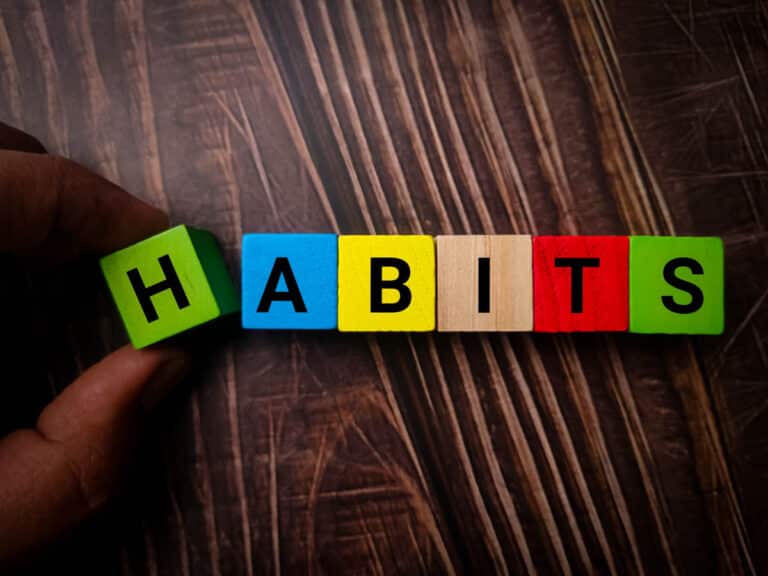1. Self-Assessment of Emotional State.
What is it?
This step involves deep introspection about your daily feelings and emotions. Ask yourself how you’ve been feeling lately. Emotions like sadness, anxiety, anger, or frustration are normal in small, fleeting doses, but if you notice that these emotions are intense, persistent, and difficult to control, it may be a sign that something is not right.
Why is it important?
Emotional self-assessment is crucial because emotions directly affect how we perceive ourselves and the world around us. Feelings of hopelessness or despair, for example, can indicate conditions like depression. Similarly, a constant sense of being “on alert” might point to an anxiety disorder. Recognizing these signs is the first step toward seeking help.

2. Observation of Behaviors and Habits.
What is it?
Take note of how you’ve been acting lately. This includes changes in daily habits like eating, sleeping, socializing, and even more destructive behaviors such as substance abuse (alcohol, drugs) or self-destructive actions. Behaviors like avoiding social situations, excessive procrastination, or engaging in compulsions can indicate underlying issues.
Why is it important?
Our behaviors are external manifestations of our mental health. Significant and persistent changes in behavior can signal that you are struggling with something internally. For example, if you’ve started avoiding activities you used to enjoy or have isolated yourself from others, it could be a sign of depression or social anxiety.

3. Analysis of Personal Relationships.
What is it?
Here, you should reflect on the quality of your interpersonal relationships. How are your interactions with friends, family, and colleagues? Have you noticed an increase in conflicts, greater difficulty in communicating, or emotional distance from those close to you? Unresolved issues or repressed emotions may be negatively impacting your relationships.
Why is it important?
Healthy personal relationships are a key pillar of emotional well-being. Constant conflicts, poor communication, or feelings of alienation may be symptoms of larger problems like mood disorders or emotional difficulties. Therapy can help improve communication and resolve interpersonal conflicts.

4. Evaluation of Performance at Work or School.
What is it?
Consider how you’re performing in important areas of your life, such as work or school. Are you having trouble concentrating, completing tasks, or do you feel your motivation has drastically decreased? Extreme fatigue, constant procrastination, or a sense of being overwhelmed are also signs to watch for.
Why is it important?
Performance at work or school is often a direct reflection of our mental health. If you’re struggling to maintain your usual level of productivity or constantly feel demotivated, it might indicate issues like chronic stress, burnout, or other mental health conditions that can be addressed in therapy.

5. Checking for Physical Symptoms.
What is it?
Many mental health issues manifest physically. Symptoms such as insomnia, frequent headaches, digestive problems, constant fatigue, or unexplained muscle pain can be signs that your mind is overwhelmed.
Why is it important?
The body and mind are closely connected. Stress, for instance, can trigger a range of physical responses, from headaches to gastrointestinal problems. Identifying these symptoms and recognizing that they might be related to your emotional state is an essential step toward seeking help.

6. Seeking External Opinions
What is it?
Sometimes, it can be difficult to notice changes in ourselves. Talking to someone you trust, like a friend, family member, or colleague, can provide valuable external perspective. These people might have noticed changes in your behavior or mood that you haven’t.
Why is it important?
Receiving feedback from those close to you can help confirm whether the feelings or behaviors you’re experiencing are also perceived by others, reinforcing the need to seek help. Sometimes, a gentle nudge from someone who cares can be the encouragement you need to start therapy.

7. Reflection on the Desire to Change
What is it?
Ask yourself if there are aspects of your life or yourself that you’d like to change. It could be a constant feeling of dissatisfaction, a desire to improve your relationships, or the wish to better understand your own thoughts and behaviors. This desire for change might indicate that you’re ready to work on these issues in a therapeutic environment.
Why is it important?
The desire for change is a strong motivator to begin therapy. Recognizing that you want and need something different is a sign that you’re prepared to do the necessary work to improve your mental health and overall well-being.

8. Considering the Benefits of Therapy
What is it?
Finally, think about what you hope to achieve through therapy. Whether you want to develop strategies for coping with stress, improve your self-esteem, have a safe space to express your feelings, or simply better understand yourself, therapy can be the path to achieving these goals.
Why is it important?
Understanding the potential benefits of therapy can help dispel any hesitation about seeking help. Therapy is not just for moments of crisis; it’s a powerful tool for self-discovery, personal growth, and maintaining mental health.

If, after exploring these topics, you find yourself facing difficulties or desiring significant change, take a deep breath—therapy could be a valuable option for you. In therapy, you will meet a trained professional in a non-judgmental environment where your experiences and feelings are respected. Many others have sought help for similar issues and have successfully addressed their challenges. Seeking help is a crucial step in taking care of yourself and working towards a more balanced and fulfilling life.

Dr. Yaro Garcia
Hello, I am Dr. Garcia, please call me Yaro. My degrees are in clinical psychology and I am a licensed mental health counselor. My approach is caring, warm, safe, non-judgmental, and straight forward. It is a difficult decision to seek therapy, I take time to build a trusting therapeutic relationship with you…
















